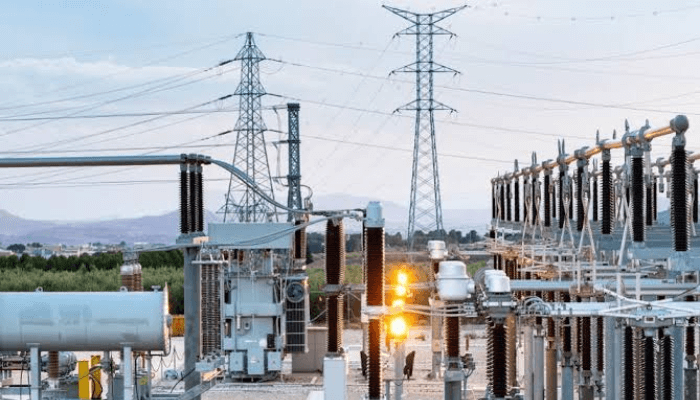
Abuja – Electricity data published by the National Bureau of Statistics (NBS) has shown that Nigeria electricity generation dropped by 700GigaWatts in the first quarter of 2024.
In the first quarter of 2024, the electricity generation stood at 5770 watts, a fall from the 6432 Gwh recorded in the last quarter of 2024.
In the third quarter of 2023, the generation stood at 5731Gwh while it was 5909Gwh in the second quarter.
In the first quarter of 2023, the generation stood at 5852Gwh.
Nigeria generates 79.46% of its electricity from gas while hydro takes 20.37%, solar takes 0.12% according to information published from data platform, Statista.
The country has continued to battle with electricity generation problems to meet needs. This is even as the country continues to express commitment to provision of electricity.
Based on the most recent annual budget performance reports available, despite health sector needs, the country fails to fully cash-back capital expenditure for the Power sector or even utilise the amount cash-backed.
In 2022, Nigeria appropriated N296 billion for its power sector capital needs, and cashed backed only N75 billion, of this amount N30 billion was utilised, meaning that only 10% of the capital appropriation to the power sector was utilised in 2022.
In 2021, the annual appropriation for capital needs of the electricity sector stood at N206 billion, of this amount N164 billion was cash backed while only N122 billion was utilised from this money, based from data published by the budget office of the federation.
This would mean that between 2022 and 2021 alone N87 billion cash backed funds for the electricity sector were unutilised, despite myriads of needs.
There have also been corruption allegations trailing the management of the country’s power sector. In 2022, the Socio-Economic Rights and Accountability Project, SERAP, demanded a probe of the monies spent on the country’s power sector, according to investigative news outlet, Sahara Reporters.
Poor electricity has left many Nigerians relying on fuel powered generators to meet their electricity demands.
As of 2022, OECD data puts Ghana electricity generation at 23,163Gwh, Ivory Coast with lesser population than Nigeria generates 9835Gwh per latest CEIC data.
South Africa generates 18717Gwh, Morocco 40,512Gwh, Algeria 7583Gwh. All these countries have less population than Nigeria.
Countries with similar populations like Nigeria also generate more electricity than the country.
For instance, Brazil’s electricity generation stood at 61,350Gwh, about twelve times Nigeria’s electricity generation. India also generates 144,434Gwh of electricity.
Promises of different government on bettering the fortunes of the country in terms of electricity generation has failed to materialize.
KOIKI Media bringing the world 🌎 closer to your door step
